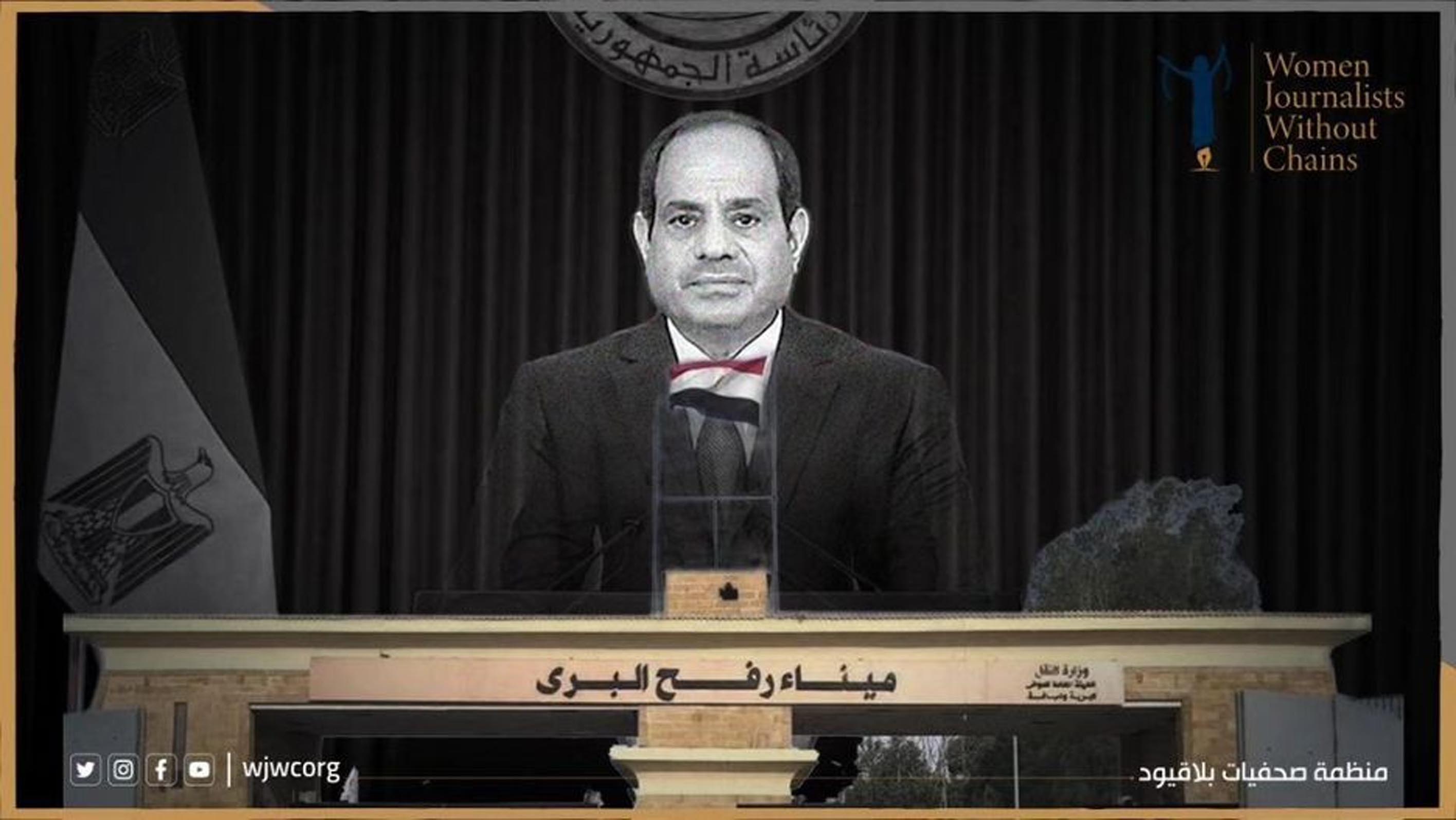Wjwc News

WJWC: History Documents Egyptian Regime's Contribution to Imposing Media Blockade on Gaza
Women Journalists Without Chains (WJWC) voiced strong disapproval for what it characterized as a collaboration between the Egyptian authorities and the Israeli government in enforcing a media blockade on the Gaza Strip —a region enduring a relentless conflict for over 70 days.
The organization stated, "As the Israeli army persists in targeting journalists in Gaza, Egypt, conversely, continues to hinder their entry into the Gaza Strip via the Egyptian Rafah crossing."
Expressing deep regret, Women Journalists Without Chains emphasized the unfortunate involvement of the Egyptian authorities in the media blockade imposed by the Israeli occupation on the Gaza Strip, impeding foreign journalists from directly documenting the distressing scene. The organization further noted that history would record the Egyptian authorities' contribution to the siege of Gaza.
In its comprehensive coverage of the conflict in Gaza, the international media relies on a variety of sources to gather information. These sources include Palestinian journalists, media professionals in Gaza, personnel from relief agencies, and healthcare workers, as well as reports sourced from social media. By incorporating perspectives from these diverse sources, the international media aims to provide a more comprehensive and well-rounded understanding of the situation on the ground.
On November 7, the head of the Egyptian Journalists Syndicate, Khaled El-Balshy, issued an international call from the union's platform to mobilize a convoy of individuals, including Egyptian and foreign journalists as well as human rights activists, to act as human shields. The purpose of this initiative was to break the siege on Gaza and provide a protective presence.
However, according to "Women Journalists Without Chains," the attempt to organize the convoy was unsuccessful. The failure was attributed to the refusal of the Egyptian security authorities to grant them the necessary permit for movement.
Since the outbreak of the relentless war, Egypt has made the Rafah crossing, which is under its control, subject to Israeli will through agreements. Consequently, the entry of aid and the departure of wounded individuals from Gaza are only permitted with the approval of the Israeli government. These actions have sparked criticism regarding Egypt's role in the ongoing conflict.
In a tragic toll, over 90 journalists and media workers have lost their lives, and two journalists remain missing since the onset of the war on October 7. The brutal conflict has left more than 80 journalists injured, with the occupation targeting the homes of over 60 journalists' families and destroying the headquarters of approximately 60 press institutions and offices. The devastating impact extends to the suspension of operations for 24 local radio stations, alongside the arrest of several journalists in Gaza and the West Bank, as reported by the Government Media Office in Gaza and the Palestinian Journalists Syndicate.
